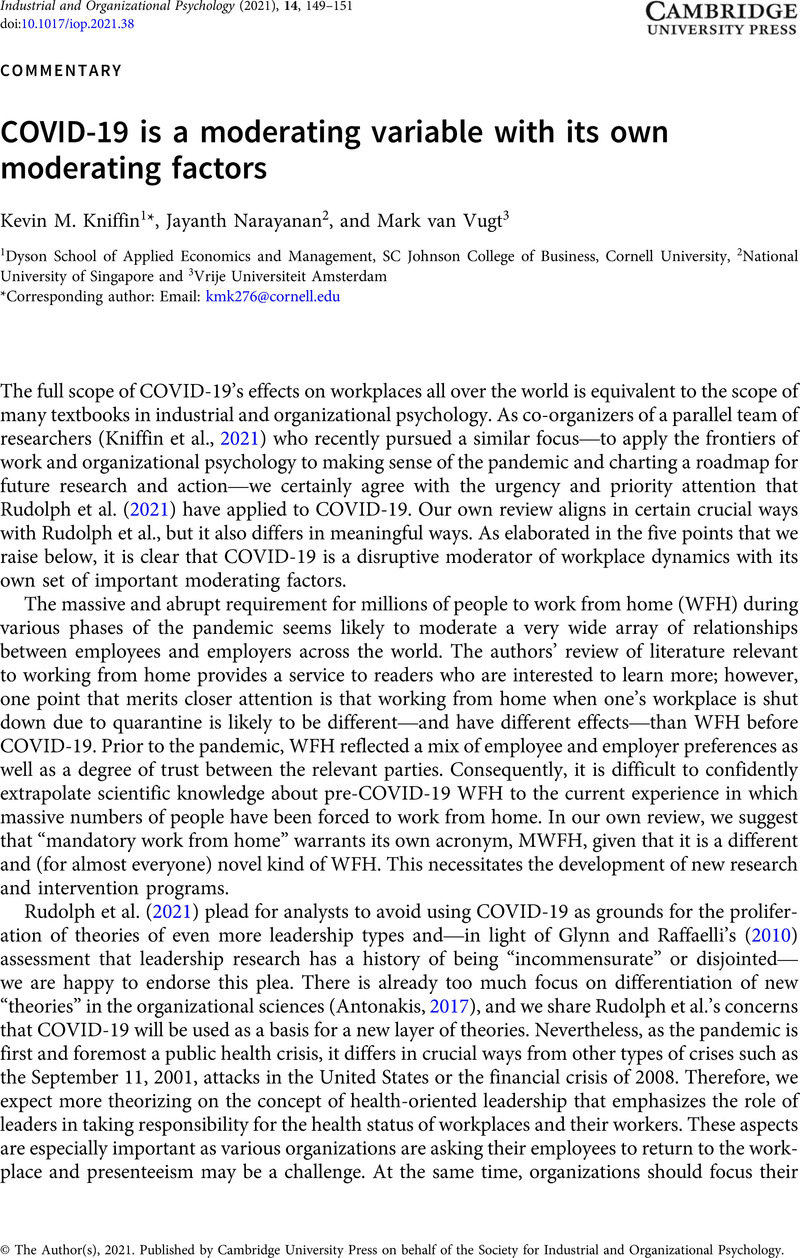Crossref Citations
This article has been cited by the following publications. This list is generated based on data provided by Crossref.
Matthews, Timothy A.
Chen, Liwei
Chen, Zhuo
Han, Xuesong
Shi, Lu
Li, Yan
Wen, Ming
Zhang, Donglan
Li, Hongmei
Su, Dejun
and
Li, Jian
2021.
Negative Employment Changes During the COVID-19 Pandemic and Psychological Distress.
Journal of Occupational & Environmental Medicine,
Vol. 63,
Issue. 11,
p.
931.
Michie, S.
Potts, H.W.W.
West, R.
Amlȏt, R.
Smith, L.E.
Fear, N.T.
and
Rubin, G.J.
2021.
Factors associated with non-essential workplace attendance during the COVID-19 pandemic in the UK in early 2021: evidence from cross-sectional surveys.
Public Health,
Vol. 198,
Issue. ,
p.
106.
Dare, Philip Saagyum
and
Saleem, Atif
2022.
Principal Leadership Role in Response to the Pandemic Impact on School Process.
Frontiers in Psychology,
Vol. 13,
Issue. ,
Saleem, Atif
Dare, Philip Saagyum
and
Sang, Guoyuan
2022.
Leadership styles and the process of organizational change during the pandemic.
Frontiers in Psychology,
Vol. 13,
Issue. ,
Mahmood, Faisal
Ariza-Montes, Antonio
Saleem, Maria
and
Han, Heesup
2023.
Teachers’ teleworking job satisfaction during the COVID-19 pandemic in Europe.
Current Psychology,
Vol. 42,
Issue. 10,
p.
8540.
Bölingen, Felix
Hermida Carrillo, Alejandro
and
Weller, Ingo
2023.
Opening the doors for spillovers: a contingency view of the effects of work from home on the work–home interface.
Frontiers in Psychology,
Vol. 14,
Issue. ,
Afota, Marie-Colombe
Provost Savard, Yanick
Ollier-Malaterre, Ariane
and
Léon, Emmanuelle
2023.
Work-from-home adjustment in the US and Europe: the role of psychological climate for face time and perceived availability expectations.
The International Journal of Human Resource Management,
Vol. 34,
Issue. 14,
p.
2765.
Jackson, Duncan J.R.
Jones, Amanda
Michaelides, George
and
Dewberry, Chris
2024.
Well-being and empowerment perceptions in a sudden shift to working from home.
Journal of Vocational Behavior,
Vol. 151,
Issue. ,
p.
104000.





